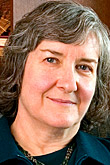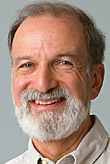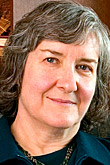Few places on the planet offer the complexity of environmental and economic governance as does China. Competing and overlapping bureaucracies with environmental officials at the prefecture, county and township levels often answering to local officials rather than superiors in the central environmental bureaucracy, create opposing perspectives on the balance between economic development and environmental sustainability.
A $400,000 grant from the New York City-based Henry Luce Foundation will support Lawrence University’s long-standing commitment to engaging students with East Asia through the college’s distinctively integrated, multi-disciplinary initiative “Sustainable China: Integrating Culture, Conservation and Commerce.”
The four-year implementation grant builds on two previous Luce Foundation planning grants for $50,000 and $30,000 that helped Lawrence lay the groundwork for the development of courses, study-abroad opportunities and collaborative research projects examining critical issues in sustainability.
Awarded through the Luce Initiative on Asian Studies and the Environment (LIASE), the grant also will enable Lawrence to expand partnerships with two Chinese institutions. Guizhou Normal University, located in the provincial capital city of Guiyang, is home to the Institute of China South Karst. Lawrence and the Karst Institute have successfully collaborated previously to improve understanding of how culture, conservation and commerce must be integrated for true sustainability. The award-winning Linden Centre in Yunnan province serves as a retreat for those studying how traditional Chinese culture meshes with modern economic development in an ecologically responsible way.
The Linden Center was created by Brian and Jeanee Linden, who also operate the Linden Gallery in Ellison Bay, which specializes in Asian art. The gallery is not far from Lawrence’s Door County Bjorklunden estate.
A Three-Prong Approach

Lawrence’s “Sustainable China” initiative is a multi-disciplinary collaboration among the college’s East Asian Studies and Environmental Studies programs, including faculty in biology, Chinese and Japanese language and culture, economics, government and history. As China and its environmental concerns loom larger on the world stage, the program provides opportunities for student engagement with issues of economic growth, environmental sustainability and a shifting cultural landscape.
The program’s mission is threefold:
• broaden and deepen Lawrence student engagement with China through the curriculum
• diversify and expand opportunities for students to gain first-hand experience with China
• promote mutually beneficial partnerships with organizations in China.
“This grant offers our students first-hand experiences in China with study tours to both rural and urban sites as well as research opportunities on environmental and cultural issues, such as ethnic minorities and economic development, ” said Jane Parish Yang, associate professor of Chinese at Lawrence, who will co-direct the “Sustainable China” program for the first year. “Our students also will be able to study at Guizhou Normal University and receive internships, including post-graduate positions. We hope these opportunities encourage students to pursue Chinese language study in conjunction with coursework related to China in environmental science and the social sciences.”
Three “Cs” of Sustainability
The program approaches China’s competing and conflicting perspectives on development and the environment by focusing on three ” Cs” of sustainability:
• Culture — language, history and the roles of ethnic minorities.
• Conservation — the importance of establishing governance systems and social institutions that encourage both public and private actors to be good stewards of natural resources.
• Commerce — an alliterative substitute for economic vitality, reflecting the perspective that environmental sustainability should be pursued in ways that also drive broader prosperity and economic sustainability.

“In today’s world it is vitally important students grapple with the complexity of sustainability, transcending the purely scientific and environmental issues to encompass economic, political and cultural factors as well and China offers an ideal context for such study,” said Merton Finkler, professor of economics and John R. Kimberly Distinguished Professor in the American Economic System who will co-direct the program its first year. “The interdisciplinary nature of our program offers a distinctive lens through which our students will study China, one based on the assertion that sustainability must address various perspectives for how scarce resources are allocated and managed.”
Last November, a Luce Foundation grant supported a 19-day study tour to China for 13 students and four faculty members for an investigation of water resource management issues.
The Henry Luce Foundation was established in 1936 by Henry R. Luce, the co-founder and editor-in-chief of Time Inc., to honor his parents who were missionary educators in China. The Foundation builds upon the vision and values of four generations of the Luce family: broadening knowledge and encouraging the highest standards of service and leadership. It seeks to bring important ideas to the center of American life, strengthen international understanding, and foster innovation and leadership in academic, policy, religious and art communities.
About Lawrence University
Founded in 1847, Lawrence University uniquely integrates a college of liberal arts and sciences with a world-class conservatory of music, both devoted exclusively to undergraduate education. It was selected for inclusion in the Fiske Guide to Colleges 2013 and the book “Colleges That Change Lives: 40 Schools That Will Change the Way You Think About College.” Individualized learning, the development of multiple interests and community engagement are central to the Lawrence experience. Lawrence draws its 1,450 students from nearly every state and more than 50 countries. Follow Lawrence on Facebook.

